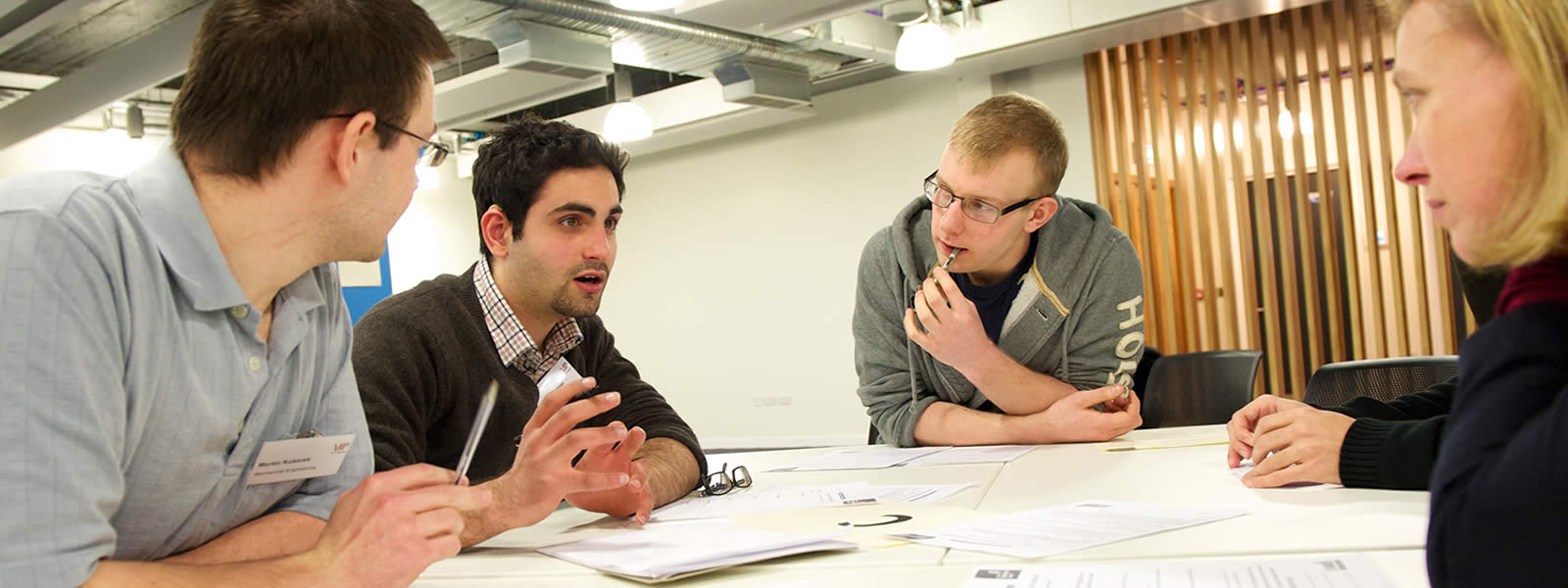Is this course right for me?
Target Audience: University of Strathclyde Academic/Research Staff
We invite you to attend an in-person workshop on ML/AI on Monday the 13th of February 2.05 – 3.55 at Collins CL205. This second workshop is part of a series of workshops exploring ML/AI opportunities for collaboration with university colleagues. Prior knowledge of the topic is not required.
The programme:
2.05-2:10 Welcome Professor Sergey Kitaev (Faculty of Science Associate Dean for Research)
2:10-2:40 Opportunities for colleagues with interests in machine learning to get involved in CPACT
Professor Alison Nordon (Technical Director of the Centre for Process Analytics and Control Technology (CPACT))
2.40-3.10 Human centric and trustworthy AI
Professor Feng Dong (CIS)
3.10-3.40 Current/future MI/AI related research projects
Dr Bingzhang Chen (M&S): Global patterns of marine phytoplankton size structure revealed by deep learning
Dr Antonio Hurtado (Institute of Photonics): Photonics for Ultrafast AI
Professor Radu Mardare (CIS): How to replace discrete mathematics with continuous mathematics in the very core of computer science
3.40 -3.55 Round up and discussion
-------------
The abstracts for the talks are available below.
Please register by Thursday 9th Feb. We can accommodate up to 95 participants on the first come first served basis.
Should you have any questions about the workshop, please contact Associate Dean Research Professor Sergey Kitaev.
-------------
Speaker: Professor Alison Nordon Technical Director of the Centre for Process Analytics and Control Technology (CPACT)
Title: Opportunities for colleagues with interests in machine learning to get involved in CPACT
Abstract: TBC
-------------
Speaker: Professor Feng Dong (CIS)
Title: Human centric and trustworthy AI
Abstract: Feng Dong will present an overview of the research activities at the human centric AI research group in the department of computer science, with a focus on causality learning and its applications to improve AI explainability and enhance clinical research for healthcare. He will also introduce a more general concept of trustworthy AI for future research.
-------------
Speaker: Dr Bingzhang Chen (M&S)
Title: Global patterns of marine phytoplankton size structure revealed by deep learning.
Abstract: Phytoplankton size plays an important role in regulating primary production, absorbing atmospheric CO2, and sustaining upper trophic levels in the global ocean. While there have been numerous studies investigating phytoplankton size structure in the ocean, it is challenging to construct full phytoplankton size spectra across large temporal and spatial scales and, consequently, there are still debates on what regulates phytoplankton mean size and size diversity. Here we assembled the largest ever dataset on size-fractionated chlorophyll a measurements in the global ocean and constructed a deep learning model to predict phytoplankton size spectra using temperature and total Chl a. We find that both mean size and size diversity of phytoplankton increase with total Chl a in the global ocean. Using predictions from Earth System Models, the deep learning model predicts that phytoplankton mean size and size diversity will significantly decrease in the North Atlantic Ocean at the end of this century.
-------------
Speaker: Dr Antonio Hurtado (Institute of Photonics)
Title: Photonics for Ultrafast AI
Abstract: Photonic approaches for radically new paradigms in ultrafast neuromorphic (brain-like) computing and Artificial Intelligence (AI) are receiving increasing research interest. In this talk, I will present our work on laser-based neuromorphic photonic computing systems yielding low-energy and high-speed, yet excellent performance in complex tasks, i.e. image processing, data classification, for use in a diversity of sectors (e.g. energy, finance, security).
-------------
Speaker: Professor Radu Mardare (CIS):
Title: How to replace discrete mathematics with continuous mathematics in the very core of computer science
Abstract: The talk resumes some of our working hypotheses and challenges in an attempt of providing a mathematical and logical foundation for the machine learning paradigms. We argue about the necessity of changing fundamental concepts that currently support the classic notions of computation, in order to properly reflect the challenges that the learning paradigms are rising.
Delivered By: Science Faculty
